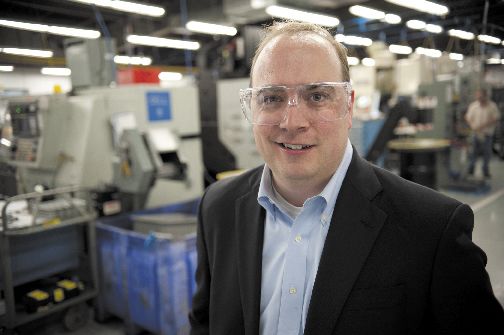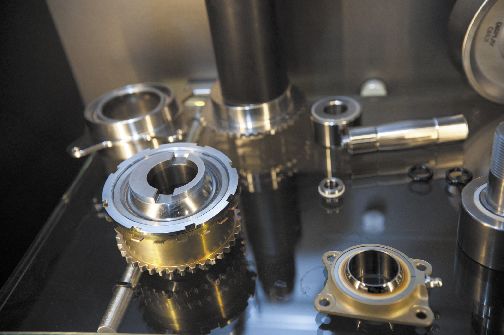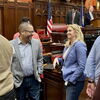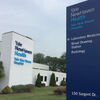Processing Your Payment
Please do not leave this page until complete. This can take a few moments.
-
News
-
Editions
-
- Lists
-
Viewpoints
-
HBJ Events
-
Event Info
- 2024 Economic Outlook Webinar Presented by: NBT Bank
- Best Places to Work in Connecticut 2024
- Top 25 Women In Business Awards 2024
- Connecticut's Family Business Awards 2024
- What's Your Story? A Small Business Giveaway 2024 Presented By: Torrington Savings Bank
- 40 Under Forty Awards 2024
- C-Suite and Lifetime Achievement Awards 2024
- Connecticut's Health Care Heroes Awards 2024
-
-
Business Calendar
-
Custom Content
- News
-
Editions
View Digital Editions
Biweekly Issues
- April 29, 2024
- April 15, 2024
- April 1, 2024
- March 18, 2024
- March 4, 2024
- February 19, 2024
- February 5, 2024
- January 22, 2024
- January 8, 2024
- + More
Special Editions
- Lists
- Viewpoints
-
HBJ Events
Event Info
- View all Events
- 2024 Economic Outlook Webinar Presented by: NBT Bank
- Best Places to Work in Connecticut 2024
- Top 25 Women In Business Awards 2024
- Connecticut's Family Business Awards 2024
- What's Your Story? A Small Business Giveaway 2024 Presented By: Torrington Savings Bank
- 40 Under Forty Awards 2024
- C-Suite and Lifetime Achievement Awards 2024
- Connecticut's Health Care Heroes Awards 2024
Award Honorees
- Business Calendar
- Custom Content
Costly regulatory rule ahead for CT manufacturers
 Photo | Pablo Robles
Jamie Coogan, VP of compliance at Kaman, is concerned most CT manufacturers are unaware of costly conflict mineral rule.
Photo | Pablo Robles
Jamie Coogan, VP of compliance at Kaman, is concerned most CT manufacturers are unaware of costly conflict mineral rule.
 Photo | Pablo Robles
Some of the materials supplied to Kaman Corp. that contain raw materials that must be certified whether they came from the Congo.
Photo | Pablo Robles
Some of the materials supplied to Kaman Corp. that contain raw materials that must be certified whether they came from the Congo.
Major Connecticut manufacturers and their suppliers soon must start tracking their connections to central Africa under a U.S. Securities and Exchange Commission rule with a large price tag.
"For companies that have not started on this right now are already behind schedule," said Jim Low, partner at advisory firm KPMG, LLC.
The conflict minerals rule of the Dodd-Frank Act requires all publicly traded companies to show whether their use of certain minerals — gold, tin, tungsten, and tantalum — supported rebel forces in the Democratic Republic of the Congo or any of the 10 surrounding countries.
"We may have to eliminate certain suppliers that can't comply," said Jamie Coogan, assistant vice president of SEC compliance and external reporting at Bloomfield distribution and aerospace manufacturer Kaman Corp. "It really throws the onus onto those smaller manufacturers to know where their materials come from."
SEC estimates the rule will impact 6,000 publicly traded companies across the nation, all their suppliers, and cost $4 billion in compliance this year and $600 million annually thereafter.
The rule was created in August and impacts all of this year's manufactured products. Reporting must be complete by May 31, 2014 and at the end of May for every year thereafter.
Under the rule, companies must certify where their supplies of gold, tin, tungsten, and tantalum originated. If the materials were sourced from central Africa, then the company must have a third-party firm audit whether their purchase supported the armed conflict in the Congo. If the purchase did support the armed conflict, then the company must report to the SEC who exactly the funds went to.
Click here to see how these minerals are used in manufacturing.
"The purpose of the rule is to provide information to investors," Low said. "It does not forbid you from using these materials."
Kaman is concerned that supply chain companies are not aware of this rule and the significant burden it will put on these smaller manufacturing firms, Coogan said.
A Kaman product such as the cockpit for the Blackhawk helicopter has hundreds of suppliers and parts including tin solders, sheet metals, and circuit boards that could include conflict minerals. For all of Kaman's products, thousands of suppliers could be impacted, Coogan said.
"It really hits all aspects of our business from the aerospace and distribution side," Coogan said. "We are on the hook for every component in every subcomponent."
Right now, Kaman is identifying all products and processes that use the materials in question, and the company later will figure out the suppliers on those products.
In the third quarter, Kaman will send out letters to suppliers asking them to certify the source on their gold, tin, tungsten, and tantalum. Kaman's suppliers must respond by the fourth quarter.
Because the issue hasn't been talked about much on the supply chain, Kaman is worried the first time many suppliers will hear about the rule is when they receive the request letters, Coogan said. And that could make the certification process troublesome for the smaller firms.
"One thing we have to decide as a publicly traded company is do we move onto another supplier that can certify," Coogan said.
The memberships of the Aerospace Component Manufacturers and the New Haven Manufacturers Association — two of the major trade groups representing Connecticut's supply chain — have not discussed the conflict mineral rule.
"Certainly not that I'm aware of," NHMA Executive Director Jerry Clupper said. "I haven't heard anything."
ACM members don't really use tin solders or gold for electronics, so their exposure might be limited, said ACM Executive Director Allen Samuel.
However, tantalum is used on jet engine parts, so the aerospace component industry will have to do at least some certifications.
"The type of our manufacturing companies that would use those materials would expect to get the proper certification that we are getting on materials," Samuel said.
Hartford conglomerate United Technologies Corp. referred all questions about the conflict mineral rule to the trade group National Association of Manufacturers, which is suing the SEC over the regulation. UTC is the parent company of many major Connecticut manufacturers including East Hartford jet engine maker Pratt & Whitney, Stratford helicopter maker Sikorsky Aircraft Corp., and Farmington heating and cooling system manufacturer Carrier Corp.
NAM is suing to stop the implementation of the rule, saying the $4 billion price tag is one of the costliest in SEC history and will have limited impact on the funding of the Congo conflict.
"The business community understands the seriousness of the strife occurring in the Democratic Republic of Congo and the need to implement solutions to bring an end to the violence," said NAM spokesman Jeff Ostermayer. "However, while well-intentioned, the SEC's final rule is no solution to these problems."
Connecticut manufacturers should not rely on this or any other lawsuit to stop the implementation of the rule, Low said. The SEC has prevailed in nearly all lawsuits over other Dodd-Frank rules, and the fact that SEC did not stay the conflict mineral rule when the lawsuits were filed isn't a good sign.
"We believe our legal interpretation and economic analysis are sound, and we look forward to defending the rule that Congress directed us to write," SEC spokesman John Nester said.
Canada and the European Union have developed similar conflict mineral rules, Low said.
Instead of counting on the lawsuits, Low advises Connecticut suppliers to start performing their due diligence immediately, especially if they are interested in keeping their contracts with publicly traded companies.
"It becomes a business decision for you as a private company if you are willing to do this due diligence in order to keep that portion of your revenue," Low said.
The first two years of reporting under the conflict mineral rule allow companies to report that the origin of their gold, tin, tungsten, and tantalum was undeterminable, Low said, but that option goes away by the third year.
Kaman is willing to work with its suppliers to help certify the origin of their conflict minerals, but the Bloomfield company only has so much ability to aid other firms, Coogan said. At some point, if suppliers aren't doing the due diligence on their own, then Kaman will find someone who will.
"In the current economic climate, we are not able to add additional headcount to cover this," Coogan said.
Related Content

2022 Giving Guide
This special edition informs and connects businesses with nonprofit organizations that are aligned with what they care about. Each nonprofit profile provides a crisp snapshot of the organization’s mission, goals, area of service, giving and volunteer opportunities and board leadership.
Learn more
Subscribe
Hartford Business Journal provides the top coverage of news, trends, data, politics and personalities of the area’s business community. Get the news and information you need from the award-winning writers at HBJ. Don’t miss out - subscribe today.
Subscribe
2024 Book of Lists
Delivering Vital Marketplace Content and Context to Senior Decision Makers Throughout Greater Hartford and the State ... All Year Long!
Read Here-
2022 Giving Guide
This special edition informs and connects businesses with nonprofit organizations that are aligned with what they care about. Each nonprofit profile provides a crisp snapshot of the organization’s mission, goals, area of service, giving and volunteer opportunities and board leadership.
-
Subscribe
Hartford Business Journal provides the top coverage of news, trends, data, politics and personalities of the area’s business community. Get the news and information you need from the award-winning writers at HBJ. Don’t miss out - subscribe today.
-
2024 Book of Lists
Delivering Vital Marketplace Content and Context to Senior Decision Makers Throughout Greater Hartford and the State ... All Year Long!
ABOUT
ADVERTISE
NEW ENGLAND BUSINESS MEDIA SITES
No articles left
Get access now
In order to use this feature, we need some information from you. You can also login or register for a free account.
By clicking submit you are agreeing to our cookie usage and Privacy Policy
Already have an account? Login
Already have an account? Login
Want to create an account? Register
Get access now
In order to use this feature, we need some information from you. You can also login or register for a free account.
By clicking submit you are agreeing to our cookie usage and Privacy Policy
Already have an account? Login
Already have an account? Login
Want to create an account? Register










0 Comments